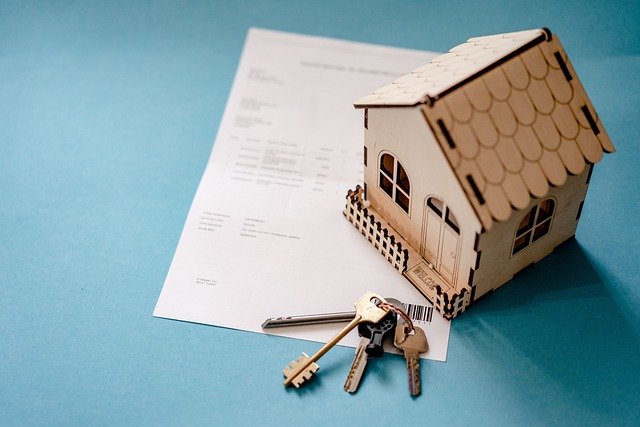Navigating the Path to Homeownership: Buying Your First Apartment in the US
The journey to purchasing your first apartment in the United States can be both exciting and daunting, especially for young people or those with limited credit history. This comprehensive guide will walk you through the process, addressing common concerns and providing practical advice for aspiring homeowners.

Can you get an apartment with no credit history?
While having a good credit score certainly helps in securing an apartment, it’s not always a deal-breaker. Some landlords and property management companies are willing to work with individuals who have no credit history, particularly if they can demonstrate financial responsibility in other ways. This might include:
-
Providing proof of steady income
-
Offering a larger security deposit
-
Getting a co-signer with good credit
-
Showing a history of on-time rent payments from previous landlords
It’s important to be upfront about your credit situation and be prepared to offer alternative ways to prove your reliability as a tenant.
What options are available for young people with no credit check?
For young individuals looking to rent an apartment without undergoing a credit check, several options are worth exploring:
-
Private landlords: Some individual property owners may be more flexible with their rental requirements compared to large management companies.
-
Student housing: If you’re a student, many universities offer on-campus or affiliated housing that doesn’t require credit checks.
-
Roommate situations: Joining an existing lease as a roommate often bypasses the need for a credit check.
-
Rent-to-own programs: Some properties offer rent-to-own options that may be more lenient with credit requirements.
-
Subletting: Short-term sublets can be a good way to establish a rental history without going through a formal credit check process.
How can you improve your chances of apartment approval?
To increase your likelihood of being approved for an apartment, consider the following strategies:
-
Save for a larger deposit: Offering a higher security deposit can reassure landlords of your financial stability.
-
Provide references: Letters from previous landlords, employers, or character references can vouch for your reliability.
-
Show proof of income: Demonstrating a stable income that comfortably covers rent can offset credit concerns.
-
Be honest and communicative: Explain your situation upfront and be prepared to discuss how you plan to meet your financial obligations.
-
Consider a co-signer: Having someone with good credit co-sign your lease can significantly improve your chances of approval.
What steps are involved in buying your first apartment in the US?
Purchasing your first apartment involves several key steps:
-
Assess your finances: Determine how much you can afford and save for a down payment.
-
Get pre-approved for a mortgage: This gives you a clear budget and shows sellers you’re a serious buyer.
-
Research locations and properties: Consider factors like neighborhood, amenities, and potential for appreciation.
-
Work with a real estate agent: An experienced agent can guide you through the process and negotiate on your behalf.
-
Make an offer and negotiate: Once you find the right apartment, submit an offer and be prepared to negotiate.
-
Complete the home inspection: This ensures there are no hidden issues with the property.
-
Finalize your mortgage: Work with your lender to complete the loan process.
-
Close the deal: Sign the necessary paperwork and receive the keys to your new home.
What unique considerations exist for first-time apartment buyers in the US?
First-time apartment buyers in the United States should be aware of several unique factors:
-
Homeowners Association (HOA) fees: Many apartments come with monthly HOA fees that cover building maintenance and amenities.
-
Co-op vs. Condo: Understand the differences between cooperative and condominium ownership structures.
-
Building rules and restrictions: Familiarize yourself with any rules regarding renovations, pets, or rentals.
-
Property taxes: Research the property tax rates in your chosen area, as they can significantly impact your monthly costs.
-
Insurance requirements: In addition to standard homeowners insurance, you may need additional coverage for things like flood or earthquake protection.
How can you finance your first apartment purchase?
Financing options for first-time apartment buyers include:
-
Conventional mortgages: These typically require a down payment of 3-20% of the purchase price.
-
FHA loans: Government-backed loans with lower down payment requirements, often as low as 3.5%.
-
VA loans: Available to eligible veterans and service members, offering favorable terms and potentially no down payment.
-
First-time homebuyer programs: Many states offer special programs with down payment assistance or reduced interest rates for first-time buyers.
-
203(k) loans: These allow you to finance both the purchase and renovation of a property in one loan.
| Loan Type | Down Payment Requirement | Credit Score Minimum | Special Features |
|---|---|---|---|
| Conventional | 3-20% | 620+ | Lower mortgage insurance with 20% down |
| FHA | 3.5% | 580+ | Lower credit score requirements |
| VA | 0% | No set minimum | No mortgage insurance required |
| First-Time Homebuyer | Varies by program | Varies by program | Down payment assistance available |
| 203(k) | 3.5% | 580+ | Combines purchase and renovation costs |
Prices, rates, or cost estimates mentioned in this article are based on the latest available information but may change over time. Independent research is advised before making financial decisions.
In conclusion, while buying your first apartment in the US can seem challenging, especially for those with limited credit history, there are numerous pathways to achieve this goal. By understanding your options, improving your financial profile, and leveraging available resources, you can navigate the process successfully and take your first step towards homeownership.




